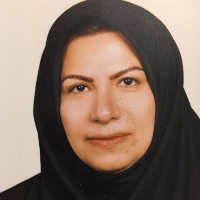Investigating Tarikh-e Beyhaghi through Discourse Analysis
If we consider language not as a mirror reflecting struggles, but as the subject and tool of struggles, then we should use the signifier of discourse, which makes the concepts of power and language understandable in a continuous and inseparable conceptual entanglement. This article aims to analyze the text of Tarikh-e Beyhaqi as one of the most influential classical texts of Persian literature with a discursive method. In other words, by placing this text in its discursive context and its dialectical relationship with power, and understanding this text as the field of conflict between powers and conflicting discourses of society, a new understanding of it can be achieved. In order to achieve this goal, Fairclough's critical discourse analysis method is used to perform micro-textual analysis, and Laclau and Mouffe's discourse theory is used to perform macro-discourse analysis of Bayhaghi era. The text of Tarikh-e Beyhaqi, as shown, does not reflect the true struggle, but itself, is part of the struggle process. This text is influenced by the chain of ruling discourses and is used against peripheral discourses. Tarikh-e Beyhaqi, under the influence of the discourse that pulls the bipolar mind of the text to a directional representation of the flow of affairs, highlights the ruling discourses and marginalizes the peripheral discourses.
Power , discourse , text , criticism , Tarikh-e Beyhaqi
-
Existential Anxiety in connection with Gothic Aesthetics in Forūgh Farrokhzād's Poetry
*
Journal Of Linguistic and Rhetorical Studies, -
Political Subjectivity and Hermeneutics of the “Self” in Shamlou’s Poetry
Ghodsieh Rezvāniān*, Souren Sattārzādeh
Half-Yearly Persian Language and Literature,


